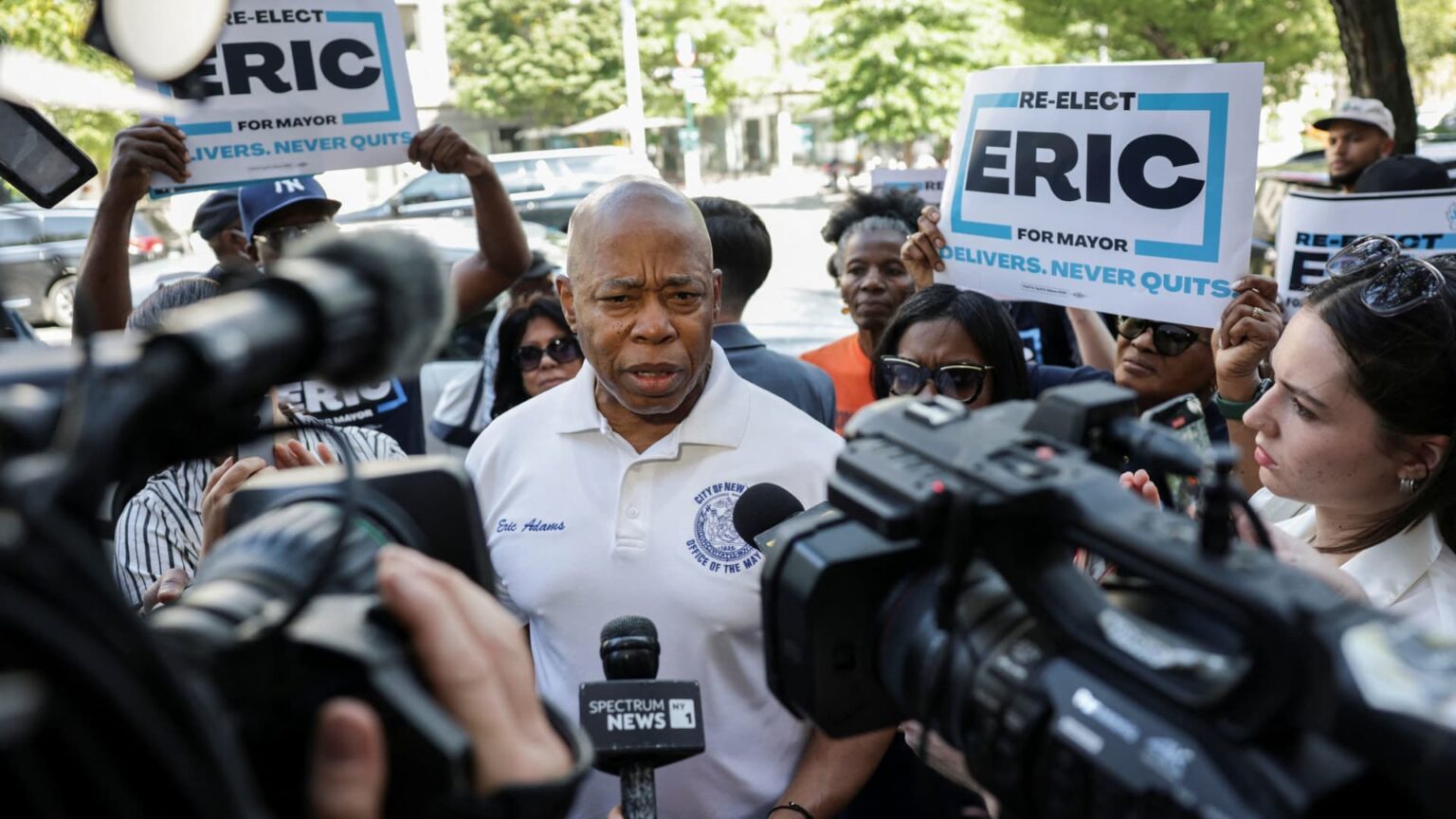New York City Mayor Eric Adams has made headlines with his recent announcement suspending his bid for re-election, a significant turning point in the crowded political landscape. His decision could greatly influence the dynamics of the upcoming mayoral race, particularly for his former rival, Andrew Cuomo, who is running as an independent. As the political maneuvering intensifies, the implications of Adams’ exit and the subsequent reactions from other candidates, including Republican nominee Curtis Sliwa, could reshape voter sentiments as the election approaches.
| Article Subheadings |
|---|
| 1) Announcement of Suspension |
| 2) Implications for the Race |
| 3) Response from Political Opponents |
| 4) Voter Sentiment and Polling |
| 5) Future of the Campaign |
Announcement of Suspension
On September 15, 2025, Eric Adams officially announced that he would suspend his re-election campaign for mayor of New York City. This decision arrives amid a backdrop of diminishing polling numbers and public scrutiny regarding his political future. The mayor’s announcement noted the financial obstacles he faced, citing the campaign finance board’s withholding of several million dollars critical for his campaign. Adams shared these thoughts in a video statement, voicing concerns over “constant media speculation” that undermined his ability to fundraise effectively.
Implications for the Race
The suspension of Adams’ campaign may have various ramifications in the high-stakes race for mayor. Former Governor Andrew Cuomo, who is running as an independent, may see increased support from Adams’ voter base depending on how many of them choose to shift their allegiance. President Trump has publicly suggested that both Adams and Sliwa should consider withdrawing from the race to facilitate a direct contest between Cuomo and Zohran Mamdani, the Democratic nominee. The political calculus will be critical, as those aligning with Adams may have differing views on the viability of supporting Cuomo.
Response from Political Opponents
Political opponents have been quick to respond to Adams’ announcement. Curtis Sliwa emphasized that he remains committed to running, asserting his campaign’s belief that he is the only candidate capable of defeating Mamdani. In reaction, Mamdani stated that he and his supporters would not be deterred by the influence of Trump and his wealthy backers, reaffirming his dedication to a campaign focused on addressing the city’s future. Such back-and-forth among candidates exemplifies the charged atmosphere leading up to the election.
Voter Sentiment and Polling
Public opinion has played a significant role in shaping the trajectory of the mayoral race. Polls consistently positioned Adams within single-digit favorability ratings among New Yorkers, reflecting a notable decline since he faced federal corruption charges earlier this year—charges which were later dropped. Polling data indicates that, should Adams withdraw, Mamdani could maintain an edge over Cuomo even if Sliwa remains in the race. Tracking these figures will be essential as campaigns adapt strategies to capture voter loyalty in a changing political landscape.
Future of the Campaign
As political tensions escalate, the question of what lies ahead for Adams—and indeed the entire mayoral race—remains open. Adams is poised to become the first one-time mayor of New York City since David Dinkins. Meanwhile, with increasing pressure for Sliwa to reconsider his own campaign and with the specter of influence from Trump and wealthy donors, the dynamics of the race could shift dramatically in the coming weeks. Analysts will be closely examining how candidates re-strategize in light of Adams’ suspension and whether this paves the way for a more defined electoral showdown.
| No. | Key Points |
|---|---|
| 1 | Mayor Eric Adams has suspended his bid for re-election amid declining polling numbers. |
| 2 | His decision may influence voter loyalty towards Andrew Cuomo, the independent candidate. |
| 3 | Political opponents like Curtis Sliwa and Zohran Mamdani have reacted strongly to Adams’ announcement. |
| 4 | Polling data suggests Mamdani could maintain an edge over Cuomo should Adams withdraw. |
| 5 | The future of the campaign remains uncertain as candidates adjust to Adams’ exit. |
Summary
The recent announcement by Mayor Eric Adams to suspend his re-election campaign marks a significant shift in New York City’s political landscape. As the dynamics of the race evolve, the impact of his decision could redefine voter alignments and strategies among the remaining candidates. With substantial public sentiment and polling data in play, it will be crucial to monitor how Adams’ exit reverberates through the broader mayoral contest as the election approaches.
Frequently Asked Questions
Question: Why did Eric Adams suspend his re-election campaign?
Eric Adams suspended his campaign primarily due to diminishing polling numbers and the financial implications of campaign finance restrictions affecting his fundraising capabilities.
Question: How might Adams’ decision influence other candidates?
Adams’ suspension might create opportunities for candidates like Andrew Cuomo to gain support from his voter base, depending on how those supporters realign politically.
Question: What impact does polling have on the mayoral race post-Adams?
Polling plays a critical role in shaping campaign strategies and voter behavior; should Adams leverage favorability ratings decline, candidates like Mamdani could capitalize on a clear opportunity while Sliwa may need to reevaluate his approach.


